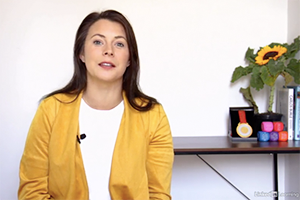Putting Humans First: Authentic Inclusion
In this video, Frances West calls for a new way of thinking where diversity is at the core of disruptive innovation. She shares her concept of Authentic Inclusion™ through her personal story as a first-generation immigrant and woman in tech executive and why her “human-first” thinking is critical for individuals, businesses and society now.
Organizational Questions to Ask
- Are you proactively purchasing and building accessible products?
- Do organizational policies, processes, and procedures account for disabled people/people with disabilities?
- When accounting for disabled people/people with disabilities in your policies, processes, and procedures, how do you consider intersectionality (i.e. a person is not one identity)?
- Is accessibility built into job descriptions and the interview hiring process?
- Do you have a funding model and third party services set up for key communication accommodations (e.g., Captioning, PDF Remediation, Sign Language Interpreters, etc.)?
- Are your customer support teams trained in disability etiquette?
- Do you ensure your staff members have access to courses, conferences, and certifications in relation to accessibility?
- Do your developers and designers have access to the automated testing reports, assistive technology, and other resources needed for building inclusive digital experiences?
- How do you ensure organizational accountability?
- How do you ensure you are getting feedback from the disability community on your organizational accessibility?
Resources to Reference in Organizational Discussions
- Disabiity:In Disability Fundamentals for Managers: A free, open-source, 30-minute interactive training that helps managers learn about disability awareness, etiquette, disclosures and accommodations, and holding accessible meetings and events. Google adapted this internal course for use by any company around the globe.
- The Employer Assistance and Resource Network on Disability Inclusion (EARN) is a free resource that helps employers tap the benefits of disability diversity by educating public and private sector organizations on ways to build inclusive workplace cultures.
- Hiring Disabled Workers: Myths & Facts: The Commonwealth of Massachusetts covers myths that can interfere with the ability of the disabled community to have equality in employment.
- Teach Access Accessibility Skills Hiring Toolkit: Teach Access provides the Accessibility Skills Hiring Toolkit to help organizations build internal capacity for producing accessible digital products by developing a knowledgeable and skilled workforce. The toolkit currently provides Position Description Language and Screening and Interview Questions.
Featured Training: Supporting Workers with Disabilities
 A professional with a disability may also have an aptitude for project management, graphic design, or full-stack development. But physical and social barriers in the world of work can make it difficult to fully capitalize on those skills—or worse, prevent them from securing gainful employment at all. Liz Johnson, a Paralympic gold-medalist and founder of The Ability People, seeks to knock down these barriers by helping organizations redefine how they view people with disabilities in the workforce. And in this course, she shares strategies that can help you do the same.
A professional with a disability may also have an aptitude for project management, graphic design, or full-stack development. But physical and social barriers in the world of work can make it difficult to fully capitalize on those skills—or worse, prevent them from securing gainful employment at all. Liz Johnson, a Paralympic gold-medalist and founder of The Ability People, seeks to knock down these barriers by helping organizations redefine how they view people with disabilities in the workforce. And in this course, she shares strategies that can help you do the same.
